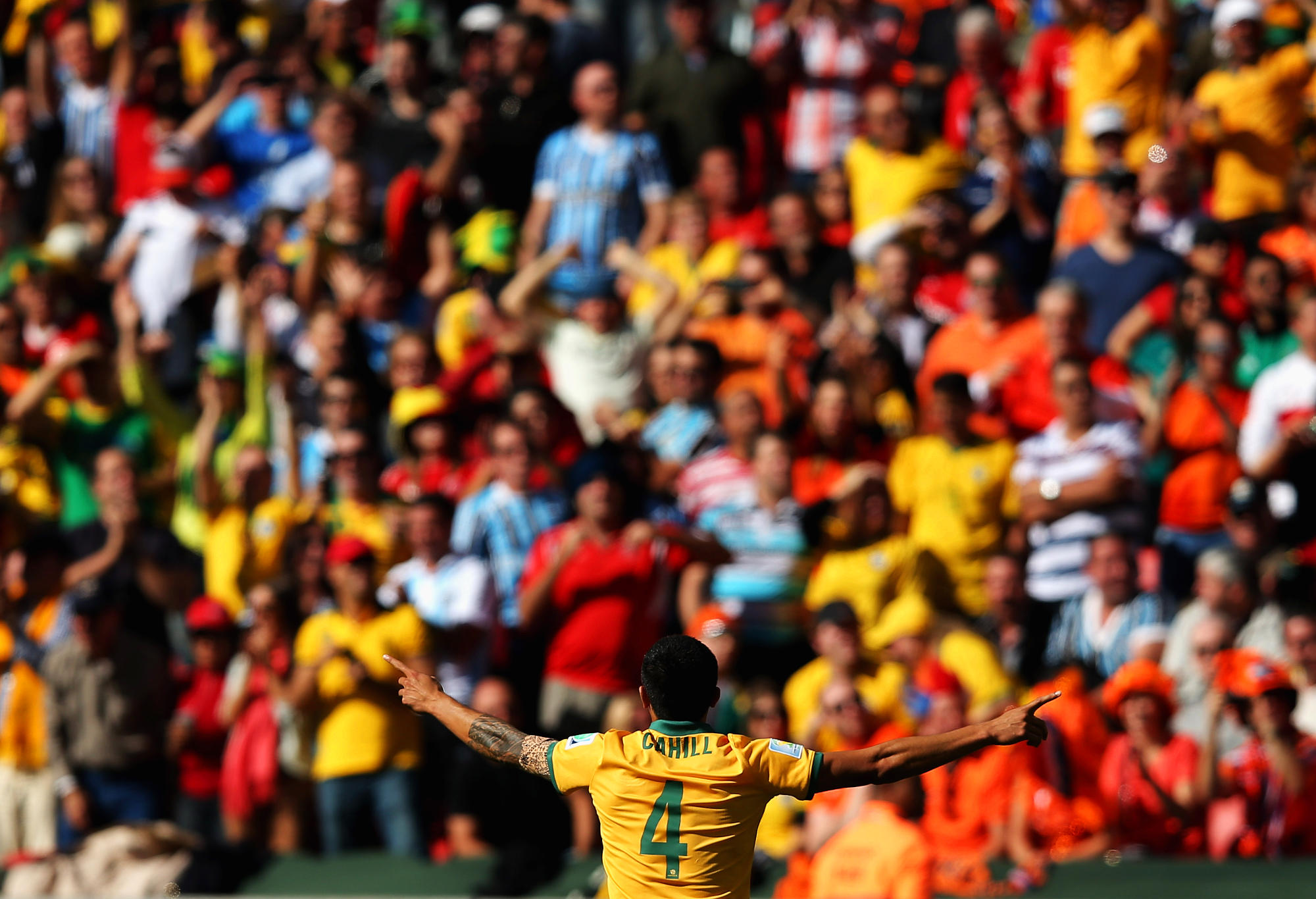Young excellence, promotion battles, and a happy farewell: The Australian team of the week from players around the globe
Even though St.Pauli ultimately lost a high-scoring affair, Jackson Irvine was a standout, as well as scoring a late goal.
My wife’s home village is Basloukit in the snowcapped mountains of northern Lebanon.
She was actually born in Tripoli before settling in the mountains and immigrating to Adelaide as a toddler.
It was a risky adventure as Joseph and Angela Tannous dragged their small tribe across the globe in search of a more settled environment to raise a family. It was a search for peace, calm and stability.
It is one that thousands of Lebanese nationals have undertaken throughout Australia’s history.
The subject is quite topical at the present time and the narrow-minded perspective of a few hillbillies up north often lumps many migrant communities under the same umbrella. The Lebanese have suffered the barbs of such numbskulls throughout the years, with stereotypical views becoming popular opinion when fueled by a largely irresponsible media.
Decades ago, it was the Italian and Greek communities who felt the wrath of the rather insular, conservative red-necked Aussie. Soon after it was the Vietnamese and Middle Eastern migrants’ turn.
Currently, knocking Sudanese migration is the flavour of the month and is well and truly in the headlights of the national agenda.
While there are fools and criminals in all communities and statistics sometimes reflect real problems in certain areas, the vast majority of those lucky enough to adopt Australia as their home are honest, hardworking and genuine.
Sadly, the ill-informed opinions of a few tend to dominate discussion around migration; working with a narrative of hate rather than acceptance and empathy. The net result has been a galvanising of nationalistic pride for the homeland within migrant communities.
Football provides a perfect platform for that pride to take a tangible form. The Socceroos’ World Cup playoff match against Syria in Sydney last year was a living, breathing example of the fervour that results when people are given a rare chance to reconnect with their roots through sport.
It was an astonishing night.
My friends in the Syrian community all spoke of mixed emotions; knowing full well that as loudly as they were prepared to cheer for their country of birth or origin, they would also be well aboard the Socceroos’ bandwagon should the team scrape through the playoffs and earn a spot in Russia.
The unbridled joy on the night defied the human tragedy unfolding in Syria and for a moment or two, football once again became the vehicle with the power to make us all better as people.
On November 20, the Lebanese community will have the very same opportunity. If early interest is anything to go by, it will be ‘fully sick’.
My early crow is 60,000 fans. A friend of mine gagged when I made that claim on Friday but he really doesn’t know his fatoush from an FJ Holden or his humous from a hamburger.
With around 230,000 people living in Australia with the spirit of the Lebanese cedar running through their veins and an estimated 72 per cent of those residing in Australia’s largest city, they will swoop on tickets faster than a 3am kebab in a nightclub car park.
Ticket prices have been considered and set at a reasonable price point by the FFA, which is pleasing to note. The designated seating areas for fans wishing to wear their colours and support the Middle Eastern nation should create a brilliant backdrop to the night.
It is perhaps fitting that the essential reason the game will take place at all is to commemorate the glittering and storied career of Tim Cahill. Born of an English father and Samoan mother, he is somewhat representative of the multicultural and migrant foundations on which football in Australia was built.

Tim Cahill celebrates. (Photo by Dean Mouhtaropoulos/Getty Images)
Moreover, the Socceroos squad that competed at the recent World Cup included men hailing from around 15 different backgrounds and cultures. It is what unites and continues to build us as a nation yet sadly, it is also what tears us apart at times of weakness.
There is a danger of the match becoming far more about the passionate Lebanese support than poor old Tim himself. If you have ever had the privilege of attending a Lebanese wedding, their inherent ability to celebrate rather ferociously will not have escaped you.
Cahill won’t mind, his new contract with Jamshedpur FC will have undoubtedly put a smile on his face and the Socceroos legend will be happy to share the limelight on the night.
The Rugby League World Cup played on our shores late last year supports my 60,000 attendance prediction. 21,127 people flooded into Allianz Stadium to watch the Cedars face the might of the Kangaroos last November in what was a generally poorly attended, out of season tournament.
I was an honorary Habib for the night. A row of friends let me tag along despite looking something of a misfit. Those very same men and women of Lebanese extraction will be in attendance on November 20th, along with a considerable number of allies supporting an ever-improving Lebanese team.
Throw in those attending as a tribute to Cahill himself and the loyal Socceroo supporter base desperate to farewell the boys prior to the Asian Cup, and the match could be an event to remember.
There will be a few tears in the eyes of my daughters; watching 50 per cent of their bloodlines taking on the Socceroos and there will be much to celebrate all around.
My biggest challenge will be explaining the basic rules of the game to my darling wife if she decides to attend with me. I’ll be the guy next to the gorgeous dark haired woman dressed in red, white and green, on her feet and shouting ‘yallah Libnan’.